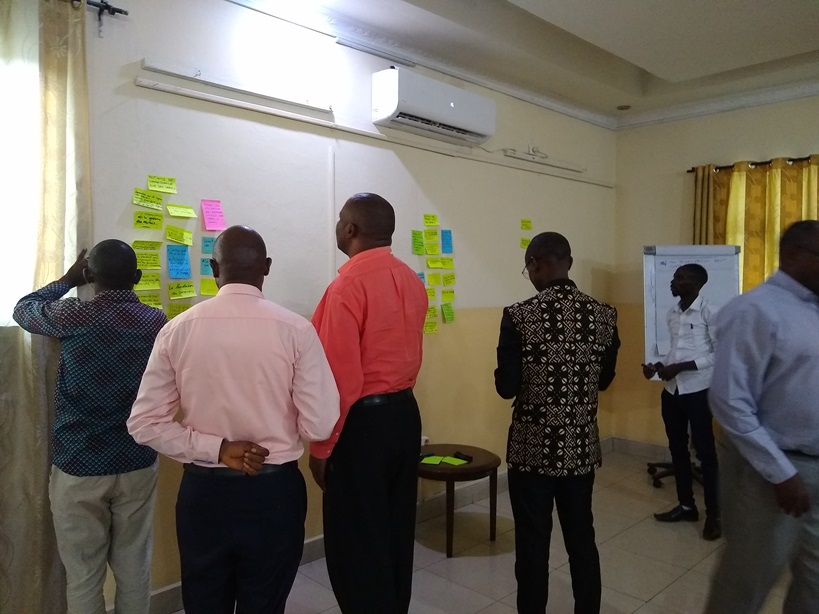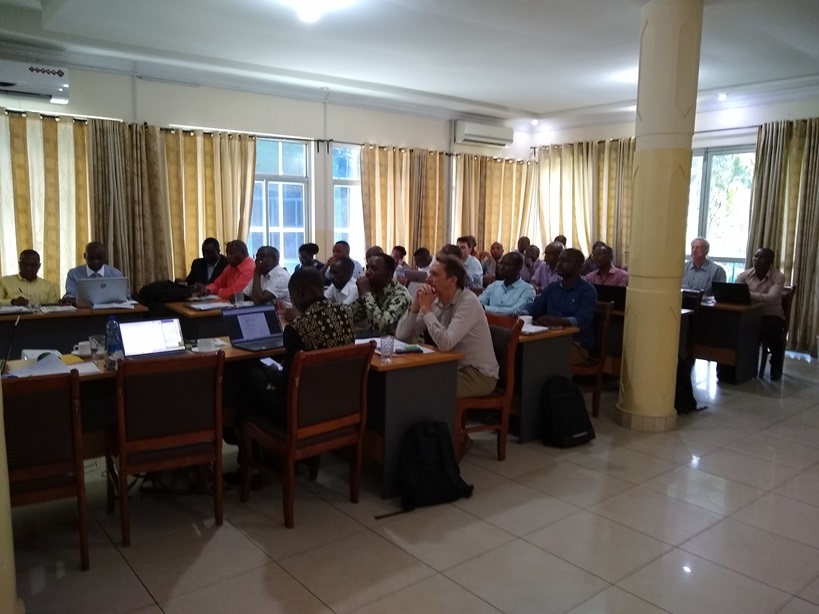
This was the third workshop on social-ecological resilience (SER) in Burundi, organized in Bujumbura on 12 March 2024 with 33 participants and 2 facilitators from SECORES. The first workshop (14 June 2022) focused on introducing the concept and sharing good practices and challenges in participants’ programmes. During the second workshop (12 September 2023), the participants discussed in particular the specific context of marshlands, a theme that was identified as important during the first workshop. In the meantime, SECORES has been working on methods to assess SER, including a study in Burundi. There was also a follow-up to be given to the reflections on the marshes.
The aims of this third workshop were therefore (a) to discuss methods for ‘understanding and assessing SER’, with – among other things – the case study of Burundi; (b) to look in greater depth at the question of the target audience for SER (‘Resilience for whom?’) in order to gain a better understanding of what SER means for the various actors in a specific system; and (c) to define the next steps for taking SER in the marshes further.
After a sort reminder of some important concepts of SER, the morning session was mainly used to explain and discuss methods to assess SER. The desk study done by SECORES compared four possible tools: Wayfinder, RAPTA (Resilience Adaptation Pathways and Transformation Approach), STRESS (Strategic Resilience Assessment) and SEPLS (toolkit for the indicators of resilience in Social-Ecological Production Landscapes and Seascapes). This last method was also applied in some field studies in Burundi in collaboration with the University of Burundi (Olivier Nkurikiye, who conducted the study for his master thesis, and Prof. Jacques Nkengurutse, who supervised the study). Their presentation raised a lot of questions and debate, i.a. on the added value of this method to assess SER, the advantages and disavantages of comparing different zones where the tool was applied, Finally, Join For Water also explained how they experimented with an indicator to measure SER based on the outcome mapping methodology. In Uganda a very qualitative approach was followed, while in Benin they translated the participatory process in one final figure. All experiences learn that, in stead of rather ‘measuring’ SER, these methods have an important added value in a common understanding (among all groups and actors in a given area) of SER and its different components.
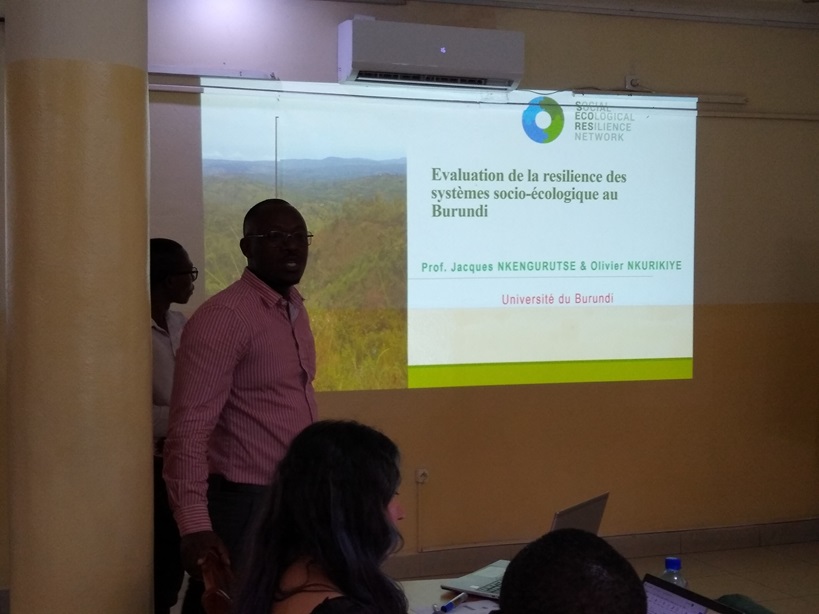
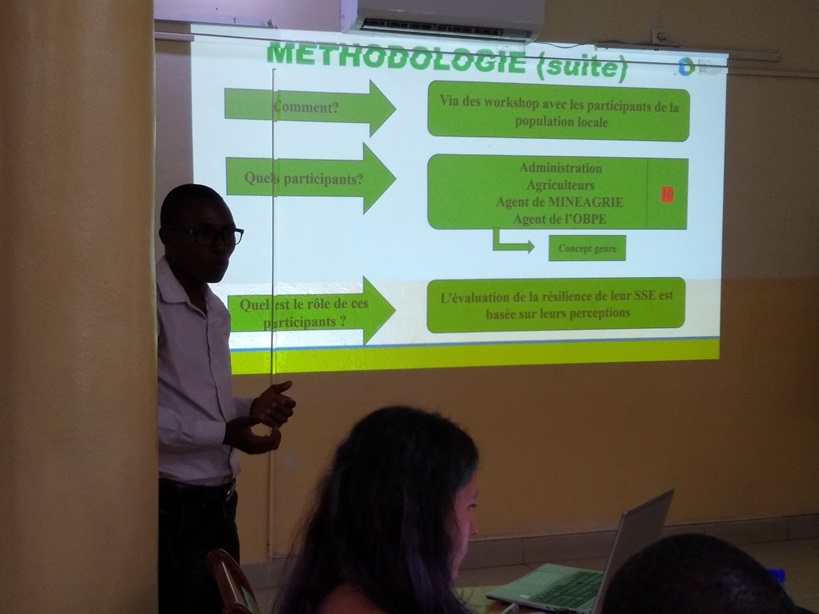
In the afternoon, a small role-playing exercise was carried out to get a better feeling among the participants, on how different groups of stakeholders consider SER. Indeed, SECORES made a 4-pager on the added value of the socio-ecological resilience approach in international cooperation. To operationalise SER, it is important to ask 5 questions: (1) the scope: “resilience of what?”; (2) the objective: “resilience to what end?”; (3) the target audience: “resilience for whom?”; (4) the perturbations: “resilience to what?”; and (5) the approach: “resilience through what?”. One of the most difficult questions is No. 3 (resilience for whom?) because each stakeholder will have different challenges and problems, and different visions of what should be done. This is also linked to the discussion on assessing SER because it will differ from one stakeholder to another and also according to the composition of a focus group.
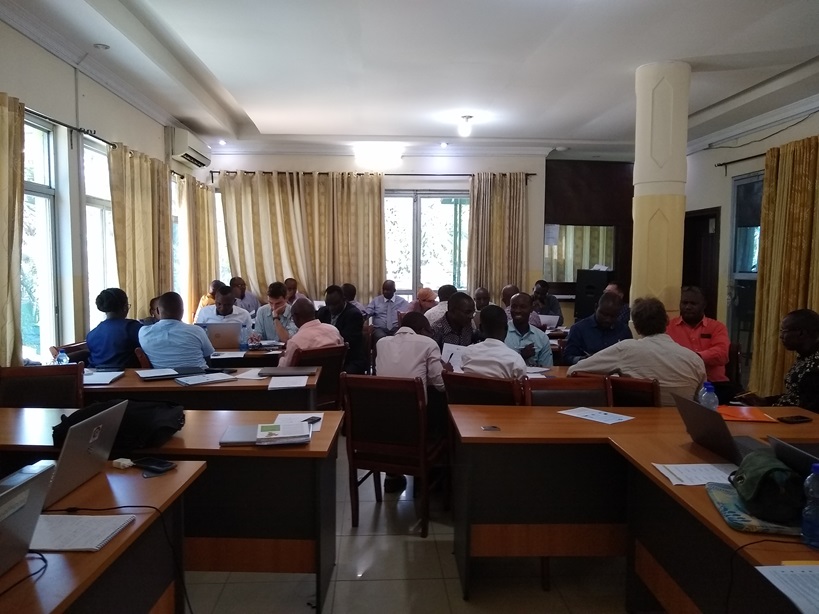
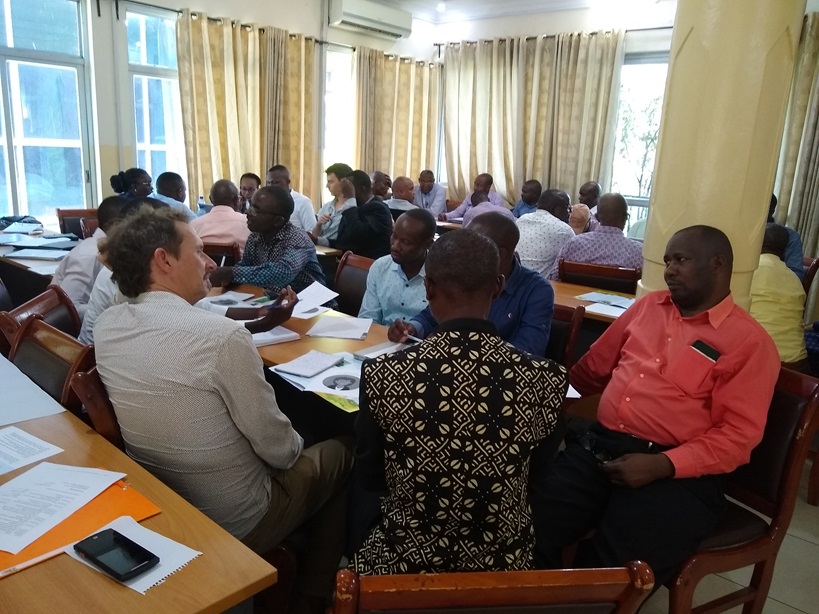
At the end of the workshop, a participatory reflexion was held on how to work on SER in marshes, highlighted by participants as an interesting case study for SER during the previous workshops. This is because marshes not only provide productive services (e.g., the possibility of agricultural production), but are also important for biodiversity, carbon storage, water regulation, etc. Suggestions were given for actions regarding (a) knowledge actions on the marshes; (b) joint field actions; and/or (c) other types of actions. As a conclusion it was clear that joint studies are a priority. Participants will be invited to propose concrete activities to put this into practice.
At the end of the workshop, a participatory reflexion was held on how to work on SER in marshes, highlighted by participants as an interesting case study for SER during the previous workshops. This is because marshes not only provide productive services (e.g., the possibility of agricultural production), but are also important for biodiversity, carbon storage, water regulation, etc. Suggestions were given for actions regarding (a) knowledge actions on the marshes; (b) joint field actions; and/or (c) other types of actions. As a conclusion it was clear that joint studies are a priority. Participants will be invited to propose concrete activities to put this into practice.
